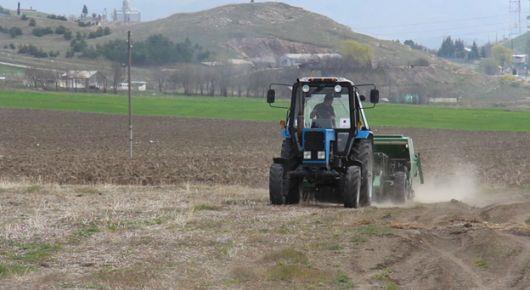FAO addresses agricultural land abandonment in Armenia

FAO continues helping Armenia’s Ministry of Economy address agricultural land abandonment, affecting approximately one-third of all arable land in the country.
Considering the situation caused by COVID-19, whereby the issue of food security becomes even more important for the country, the re-engagement of abandoned agricultural land into production has become imperative.
Now, the joint expert team of FAO and the Ministry of Economy has prepared a draft law on ensuring effective use of agricultural land, which was presented to the Legal Working Group of the Ministry of Economy for review and comment.
The purpose of the law is to support sustainable agriculture and rural development – including reduction of agricultural land abandonment and fragmentation, improved land use efficiency, agricultural land market development, enlargement of farms, and development of smallholder farms into commercial farms.
“The preparation of the law, and its eventual adoption, is one of the pillars of the proposed solution to address agricultural land abandonment in Armenia,” said Maxim Gorgan, FAO land tenure officer. “It shall establish the legal basis for a new public institution and enable a number of land management instruments, such as land banking, mediation of leases, and land consolidation.”
FAO’s analysis reveals that land abandonment is a multi-dimensional phenomenon with interlinked economic, environmental, and social root causes. In Armenia, several negative factors are the main causes of land abandonment, such as inefficient farm structures, ageing rural population, and labour out-migration. The dependence of crop production on water, together with the lack of irrigation facilities, land degradation induced by climate change, and various problems along the agricultural value chains, play a role as well.
The development of the draft law is part of a technical assistance project by FAO. Launched at the end of 2019, the goals are twofold; to establish and operationalize a new policy framework, and to introduce a set of land management instruments to facilitate land market development and farm structure improvements focusing on smallholders and family farms. The proposed land management instruments will build on European good practices and FAO’s extensive experience in this field.
“The first milestone has been achieved; however, there is still a lot of work ahead of us,” added Gorgan, “including development of detailed procedures and tools for mediation of leases, then testing the developed land management instruments in three pilot communities in Armavir marz before scaling up the approach over the entire territory of Armenia.”
The project is framed by FAO’s regional initiative on empowering smallholders and family farms for improved rural livelihoods and poverty reduction.
20 April 2020, Yerevan, Armenia
